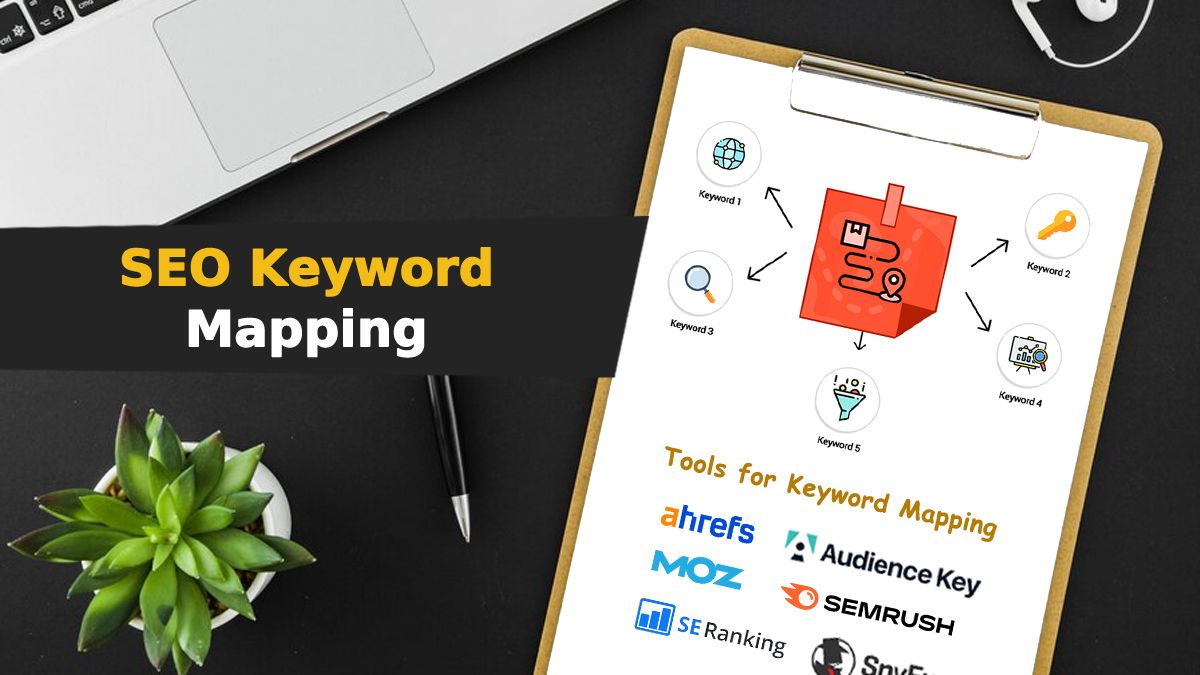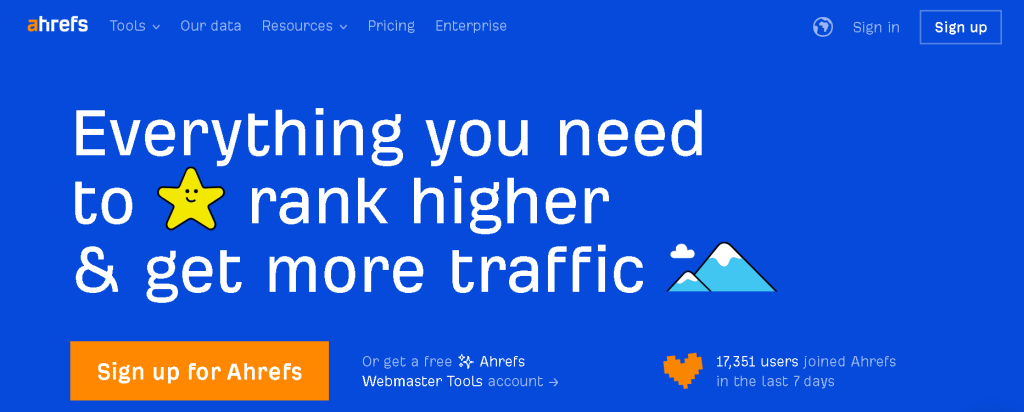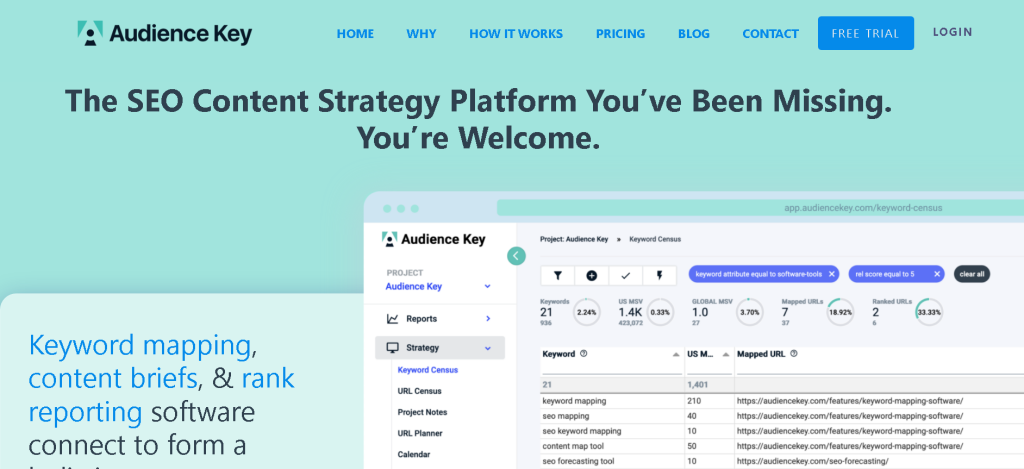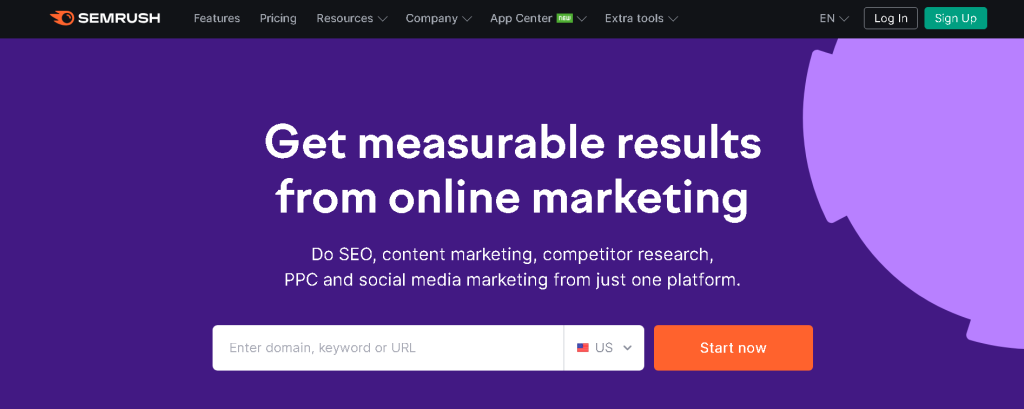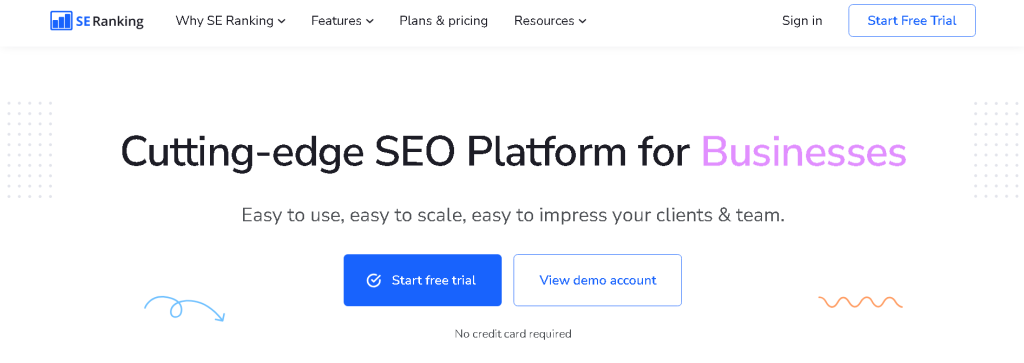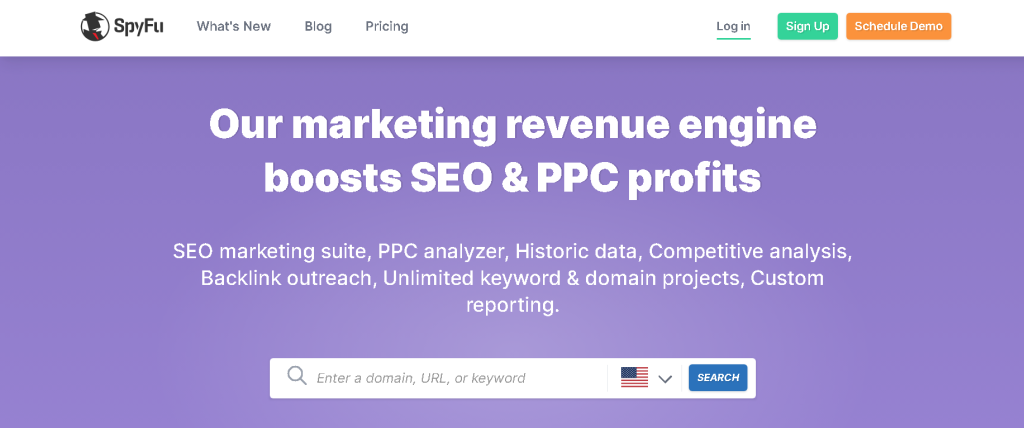Keyword mapping in SEO entails selecting the appropriate keywords for different pages of a website and aligning them with what people are searching for. It involves integrating vital words into the content and structure of a website, enhancing its discoverability on search engines and its user-friendliness. Through this strategy, SEO professionals ensure that each page targets specific keywords, thereby preventing confusion and keyword cannibalization across the website.
SEO Keyword mapping serves two primary functions in content optimization and website organization. Firstly, it ensures that every page has a designated focus keyword, enabling search engines to comprehend the page’s content more accurately. Secondly, it mitigates the risk of keyword overlap, where multiple pages vie for the same terms, avoiding excessive keyword repetition.
Before delving deeper into keyword mapping, let’s explore keyword research.
Understanding Keyword Research
Importance of Thorough Keyword Research in SEO
In-depth keyword research is pivotal for SEO, as it reveals what the target audience is actively seeking. This insight allows for the refinement of content to better cater to the audience’s needs. Effective keyword research can enhance a website’s visibility, attract more visitors, and increase engagement and conversions.
Recognizing frequently searched terms enables you to tailor your content and website’s architecture to correspond with these queries. Such alignment significantly boosts the likelihood of appearing on search engine results pages, which can enhance a website’s ranking, expand its reach, and facilitate business growth.
SEO service providers utilize keyword mapping to strategically optimize content, ensuring better search engine rankings and enhanced online visibility for their clients.
Utilizing Keyword Research Tools and Techniques
The use of keyword research tools and techniques is crucial in identifying optimal keywords for targeting. Resources such as Google’s Keyword Planner, SEMrush, and Ahrefs provide insights into keyword popularity, search frequency, and competitive usage. These tools also suggest long-tail keywords, which, while less commonly searched, are highly specific to a targeted audience.
Techniques like competitor analysis can shed light on what has proven successful for other entities in your niche. By leveraging these tools and methodologies, you can pinpoint keywords that are widely searched but have limited competition, thereby improving your website’s search engine ranking potential.
Identifying Relevant Keywords and Search Intent
Understanding keywords and the reasons behind people’s searches is crucial for SEO success. Search intent refers to the motive behind a query—whether a user is seeking information, looking to make a purchase, or has other goals. Recognizing this intent enables you to tailor your content to meet those specific needs more effectively, enhancing user satisfaction and potentially boosting your rankings.
Your selected keywords should align with your business offerings and resonate with your audience’s interests. Incorporating these terms into your SEO strategy helps bridge the gap between your content and your target demographic, amplifying your site’s visibility and increasing the likelihood of sales.
The Process of SEO Keyword Mapping
Creating a Keyword List
Generating a Comprehensive List of Relevant Keywords
The initial phase of your SEO strategy should be to compile an exhaustive list of pertinent keywords. Begin by brainstorming potential search terms related to your offerings. Subsequently, utilize keyword research tools to expand this list further. Prioritize not only the quantity but also the quality of keywords, focusing on those that are fundamental to your business and capable of attracting the right type of traffic.
Considering User Intent and Search Volume
When selecting keywords, it’s essential to consider both user intent and search volume. User intent pertains to the searcher’s desired outcome and the type of information they are pursuing. Search volume indicates the frequency of queries for a particular term within a given timeframe.
High-search-volume keywords can signify greater interest but also present more ranking challenges. By finding the equilibrium between user demands and search popularity, you can target keywords that have a better chance of achieving your objectives.
Grouping Keywords
Categorizing Keywords Based on Similarity and Relevance
After compiling your keyword list, the next step is categorization based on similarity and relevance. This process is essential for crafting content that aligns with the search intentions of each keyword group. It also enhances the ability of search engines to understand and appropriately rank your content. An organized keyword structure sharpens the focus of your SEO efforts and ensures your content is valuable to your target audience.
Organizing Keywords Into Groups or Clusters
Keyword clustering involves grouping similar or related keywords. This technique aids in planning your SEO strategy and contributes to the informational architecture of your website. By targeting a cluster of related keywords on specific pages, you can optimize more efficiently, conserving SEO resources and improving user experience.
Assigning Keywords to Pages
Analyzing Website Structure and Existing Content
Reviewing your website’s structure and content is vital for identifying gaps and leveraging potential strengths in your SEO strategy. This involves ensuring that the site’s design is SEO-friendly, assessing which pages perform well, and seeking opportunities for enhancement. It’s crucial to evaluate whether your current content aligns with user intent and to discover untapped keywords. This comprehensive audit facilitates strategic content creation and keyword alignment.
Assigning Keywords to Specific Pages or Content Pieces
With a clear understanding of relevant keywords and a thorough analysis of your website, the final task is to allocate specific keywords to particular pages or content sections. Each page should target a distinct keyword or a set of closely related keywords to satisfy user queries effectively. This strategic placement aids search engines in decoding your content, enhances your visibility in search results, and directly influences your website’s performance. Selecting the right keywords is a fundamental aspect of SEO that significantly impacts your website’s visibility and success.
Mapping Keywords to Content Elements
Identifying Content Elements Such as Headings, Titles, and Meta Descriptions
Titles are the most conspicuous elements in search results, significantly influencing click-through rates. Headings structure your content, making it more digestible for readers and search engines alike. Meta descriptions provide concise summaries of a webpage’s content and can sway a user’s decision to visit your site. Employing these elements effectively not only enhances user experience but also aids search engines in indexing and ranking your site more favorably.
Assigning Keywords to Content Elements for Optimization
Integrating the appropriate keywords into various webpage components, like titles, headings, and meta descriptions, is crucial for on-page SEO. Strategically placing your chosen keywords in these elements allows search engines to gauge the relevance of your content to user queries. It’s essential to incorporate keywords naturally and contextually, avoiding overuse that could lead to penalties.
Creating Content Briefs
Outlining Content Structure and Key Points Based on Keywords
Developing structured content around keywords enables the creation of coherent and user-friendly material that also adheres to SEO best practices. Planning your content structure and main arguments around targeted keywords provides a framework that guides your writing process. This approach keeps your content focused, enhances relevance, addresses various aspects of user inquiries, and can increase the likelihood of achieving a high search engine ranking.
Incorporating Targeted Keywords Naturally Within the Content
Incorporating specific keywords into your content requires a delicate balance between optimizing for search engines and providing value to the user. Keywords should be woven into the text organically, enriching the information without compromising readability. Natural keyword integration can elevate your website’s search engine rankings while maintaining high-quality content that resonates with readers.
Benefits of SEO Keyword Mapping
Improved SEO Performance
Enhancing Keyword Targeting and Relevance
Refining keyword targeting entails selecting and utilizing words that resonate most effectively with your audience and align with your business goals. It is vital to periodically review and update your keyword strategy, taking into account its current performance, emerging trends, and shifts in user behavior. By aligning with your audience’s needs and interests, you can craft content that strikes a chord with them, thereby enhancing your SEO performance and relevance.
Increasing Organic Search Visibility and Rankings
Employing the right keywords and optimizing content are fundamental steps in making your website more discoverable in search engine results. Building trust and value for users involves a thoughtful combination of keyword incorporation and quality content creation. This approach is rewarded by search engines with higher rankings, amplifying the likelihood of attracting more visitors to your website.
Better User Experience
Aligning Content With User Search Intent
Understanding user search intent—their underlying purpose when querying a search engine—is critical for driving organic traffic to your website. It involves discerning whether users are seeking information, looking to make a purchase, or trying to navigate to a particular site. Crafting content that aligns with these intents not only enhances user satisfaction but also increases engagement and improves your site’s visibility in search results.
Delivering Relevant and Valuable Information to Users
In an era saturated with content, offering information that is both relevant and valuable can distinguish your site. By crafting content that responds to your audience’s queries using specific, targeted keywords, you enhance your SEO performance. This strategic approach positions your brand as a credible and authoritative source of information, fostering user trust and encouraging repeat visits to your site.
Effective Content Planning
Ensuring Consistent Messaging and Keyword Usage Across the Website
A coherent and consistent message across your website not only clarifies your brand’s value proposition for users but also reinforces your website’s relevance to search engines for particular topics. Conducting regular content audits supports this consistency, ensuring that your website remains structured and optimized for search engines.
Facilitating Efficient Content Creation and Optimization Processes
Strategic keyword research and utilization can significantly enhance content development and optimization processes. By identifying critical keywords and applying them effectively, you create content that resonates with both users’ needs and search engine algorithms. This strategic approach facilitates a structured content plan, prioritizes tasks, and optimizes the use of resources.
Tips and Best Practices for Keyword Mapping
Conducting Regular Keyword Research
Keeping Up With Industry Trends and Search Behavior Changes
SEO is an ongoing process that requires continual monitoring and adaptation. Staying abreast of industry shifts and evolving search patterns enables you to anticipate user preferences and behaviors. By regularly revising your keyword strategy and content to align with these changes, you can maintain relevance and a competitive edge in the dynamic digital landscape.
Updating Keyword Mapping Periodically
Keyword mapping involves the deliberate association of specific keywords with individual website pages. However, as your website’s content evolves and as new search trends and competition arise, it becomes necessary to reassess and update your keyword allocations. Regular updates ensure that your content remains congruent with your SEO strategy and continues to perform well in organic search results.
Using a Keyword Mapping Template
Utilizing Predefined Templates for Efficient Mapping
Keyword mapping can be made more efficient by employing predefined templates. These templates typically include essential elements such as targeted keywords, links to corresponding pages, search frequency data, and user search intent. By providing a structured approach, templates ensure that the keyword mapping process is both systematic and comprehensive, covering all crucial aspects for effective SEO planning.
Tracking Keyword Assignments and Content Optimization Progress
Tracking the keywords you have assigned and the progress of your content optimization is crucial for assessing the effectiveness of your SEO strategy. Regular analysis helps identify successes and areas for improvement, allowing for timely adjustments. Employing SEO tools to track keyword performance, organic traffic, and ranking fluctuations can yield insights that inform future strategies and adjustments.
Also Read: Top 14 Competitor Website Analysis Tools
Analyzing Competitor Keywords
Identifying Gaps and Opportunities in Keyword Targeting
Ongoing SEO analysis can uncover gaps and opportunities in your keyword targeting, highlighting areas where your website may be underperforming or where certain keywords could be leveraged to achieve your objectives. By pinpointing these opportunities, you can refine your keyword strategy, target underutilized niches, and ensure your SEO efforts yield optimal results.
Incorporating Insights From Competitor Keyword Research
Analyzing your competitors’ keyword usage can unveil actionable insights to enhance your SEO strategy. Understanding the keywords driving traffic to competitors’ sites allows you to identify strategic improvements, uncover new keyword opportunities, and gain a broader view of industry trends. Integrating these insights into your keyword research can provide a competitive edge, helping you craft content that aligns more closely with your target audience’s search behavior.
Tools for Keyword Mapping
Ahrefs
Ahrefs is an indispensable SEO tool that offers a suite of features for businesses looking to enhance their online visibility. It is a platform revered by SEO professionals globally for its robust capabilities. Ahrefs delivers critical insights into the effectiveness of your marketing efforts and strategies. It boasts an extensive data repository that aids in uncovering optimal keywords, scrutinizing competitor strategies, tracking website rankings, and diagnosing SEO-related issues.
With Ahrefs, you can access up-to-date data on backlinks, website traffic, and keyword performance. Leveraging Ahrefs equips you with a deeper comprehension of your website’s SEO health, enabling you to make data-driven decisions to boost your search engine discoverability.
Features:
- Generates keyword suggestions, gauges their search volume, and assesses the difficulty of ranking for them in search engine results.
- Tracks your website’s visibility in search results for chosen keywords and documents its historical performance.
- Identifies SEO shortcomings on your website and offers actionable recommendations for enhancement.
- Delivers immediate, comprehensive reports on SEO and various metrics to evaluate your website’s performance.
- Enables benchmarking of crucial SEO metrics across different websites.
- Sends alerts when your website acquires new backlinks, tracks keyword ranking progress, and notifies you of brand mentions.
- Enhances the architecture of internal linking within a website to boost overall SEO performance.
Audience Key
Audience Key has emerged as an invaluable tool for content marketing and SEO strategists. In an industry where many marketers juggle various tools and data sources, they often find themselves trapped in the time-consuming task of manually coordinating these resources, typically using spreadsheets. Audience Key offers a connected ecosystem, presenting a robust and streamlined solution founded on a proven methodology for efficient content promotion and SEO enhancement.
This platform integrates every phase of content marketing into a singular, coherent system, enabling marketers to maintain oversight and comprehend the ripple effects of their strategic decisions across the content lifecycle. It synergizes the processes of data collation and organization, strategic planning, execution, and performance monitoring.
Features:
- Offers robust keyword organization capabilities with advanced attribution features, facilitating flexible analysis across multiple dimensions.
- Employs segmentation tools that assign specific characteristics to various audience segments, content types, customer journey stages, SERP attributes, etc., for refined classification and targeted strategies.
- Utilizes dynamic content briefs that reflect strategic updates in real time, ensuring all team members are aligned with the latest plan.
- Supports collaborative efforts with interactive planning interfaces that allow for collective discussion, sharing, and prioritization of content initiatives.
- Features an integrated content calendar for meticulous organization and management of the content pipeline.
- Incorporates state-of-the-art tracking technology to closely monitor website performance in search engine rankings and assess visibility on search engine results pages (SERPs), ensuring alignment with the overarching marketing strategy.
- Provides layered progress updates, allowing for granular monitoring at various levels, including individual keywords, specific webpages, broader sections, and entire projects.
- Includes advanced filtering options to dissect and interpret data through multiple lenses for comprehensive analytical insights.
Moz
Moz is an esteemed suite of SEO tools designed to elevate website visibility and improve search engine rankings. Its comprehensive toolkit includes the Keyword Explorer, Link Explorer, Rank Tracker, and Site Crawl, among others, making it an indispensable resource for businesses looking to refine their SEO tactics. Renowned for its user-friendly interface, Moz also prides itself on exceptional customer support and an array of beneficial features.
This platform enables users to unearth trending keywords, monitor website rankings, conduct thorough site audits, and scrutinize backlink profiles. Moz’s insights empower businesses to craft strategic SEO initiatives that bolster their online footprint and catalyze growth. For digital marketers, Moz stands out due to its robust functionality, flexible applications, and user-centric design.
Features:
- Offers in-depth insights into your website’s link profile, enhancing link-building strategies.
- Tracks your website’s search engine ranking for targeted keywords over time, providing a clear performance trajectory.
- Conducts comprehensive website analyses, offering actionable recommendations for SEO enhancement.
- Identifies and diagnoses website operational issues, proposing effective remedies.
- Includes a browser extension that delivers on-the-spot SEO snapshots of websites or pages.
- Analyzes competitors’ standings and location-specific search engine results, aiding in strategic planning.
- Monitors the web for mentions of your brand or targeted terms, keeping you informed of your online presence.
- Assesses and advises on reducing spam levels on your website, contributing to improved site health.
Semrush
Semrush is an acclaimed digital marketing toolkit that serves as a beacon for businesses striving to amplify their online marketing efforts. It is packed with a myriad of features that bolster various aspects of a marketing strategy. As an authoritative source in the industry, Semrush delivers extensive analytics and insights, facilitating competitive analysis, search engine ranking monitoring, link assessment, and keyword research optimization.
Employing Semrush allows businesses to gain a deeper understanding of their web performance, discern competitor strategies, and comprehend market dynamics. This data-driven approach equips companies with the knowledge to formulate sophisticated marketing and SEO strategies, ultimately enhancing their online visibility and propelling business growth.
Features:
- Offers a comprehensive collection of keyword suggestions along with in-depth analyses.
- Tracks website traffic and user engagement to gauge the site’s draw.
- Monitors keyword rankings, ensuring that websites are competitive in search results.
- Diagnoses and addresses SEO issues within a website, streamlining its health and performance.
- Keeps tabs on competitors’ social media performance and strategies for insightful benchmarks.
- Guides the creation of potent advertisements by analyzing competitors’ tactics.
- Assesses the online discoverability of content, providing recommendations for heightened visibility.
- Uncovers competitors’ successes, pinpointing opportunities for your own strategy enhancement.
- Delivers a holistic view of the industry landscape and potential audience insights for targeted marketing.
Also Read: How to Use Google Search Console for SEO: A Complete Guide
SE Ranking
SE Ranking stands out as an invaluable tool for businesses keen on enhancing their search engine presence. It is intricately designed to provide actionable metrics and insights that pave the way for effective SEO strategy enhancement and a stronger competitive edge in search engine results. The platform’s versatility makes it an essential asset for digital marketers, e-commerce entrepreneurs, and SEO aficionados alike.
The utility of SE Ranking extends from meticulous keyword rank tracking to comprehensive competitor analysis and SEO health checks, among other features. Its user-friendly interface is a boon for both novices embarking on website optimization and seasoned professionals looking to refine their online strategies. By leveraging SE Ranking, users can fine-tune their websites, stay apprised of performance metrics, and maintain a vanguard position in the digital landscape.
Features:
- Monitors website rankings across various search engines for targeted keywords.
- Conducts thorough on-site SEO audits to identify and rectify issues.
- Delivers strategic insights into competitors’ planning and actions.
- Analyzes the backlink profile, pinpointing any potentially detrimental links to your website’s reputation or search rankings.
- Performs SEO performance reviews for individual web pages.
- Generates rich keyword suggestions and analysis for optimization.
- Offers visibility into competitors’ keywords and advertising tactics in both paid and organic searches.
- Tracks and evaluates the efficacy of social media engagements.
- Provides customizable, user-friendly marketing plans for various needs.
SpyFu
SpyFu emerges as a comprehensive competitive intelligence tool that offers deep insights into the strategies competitors employ to secure higher rankings and optimize their advertising efforts. By revealing a myriad of keywords purchased through Google AdWords, search rankings, and historical advertising data, SpyFu equips users with the knowledge to craft superior strategies and secure a competitive edge.
Its potent keyword research capabilities open up a broad spectrum of search analytics, while features like Rank Tracker and Domain Comparison provide critical data on performance metrics in comparison to industry rivals. These multifaceted features cement SpyFu’s position as a formidable ally for digital marketing professionals.
Features:
- Offers keyword suggestions and tracks search frequency.
- Discloses the keywords that competitors rank for.
- Uncovers competitors’ paid advertising maneuvers and the targeted keywords for customer acquisition.
- Catalogs web pages that furnish backlinks to your site.
- Provides insights into competitors’ SEO strategies and their impact on web presence.
- Monitors keyword ranking progress over time.
- Enables comparative analysis of websites, examining keyword use and search result positioning.
- Advises on optimizing Google AdWords campaigns for better performance.
Conclusion
Effective keyword mapping is a cornerstone of robust SEO, enhancing your website’s relevance and visibility to both search engines and users. Integrating the appropriate keywords into your content aligns with user intent and contributes to higher search engine result placements. For businesses aiming to augment their online presence and extend their reach, a strategic approach to keyword deployment is crucial. This not only bolsters search engine discoverability but also enriches the user experience on your website.
Embarking on a keyword mapping initiative may initially appear daunting, yet the resultant uplift in search rankings, website traffic, and conversion rates justifies the effort. To refine your strategy, remain abreast of industry trends, periodically refresh your keyword selection, and monitor your performance metrics. Enhanced content resulting from these efforts will ensure your website’s enduring relevance and competitiveness, fostering sustainable growth and achieving lasting SEO triumphs.
FAQs
Can Keyword Mapping affect website traffic?
Yes, effective Keyword Mapping can lead to higher search engine rankings, attracting more organic traffic to the website.
Can Keyword Mapping alone guarantee improved SEO rankings?
While it’s a crucial component, SEO rankings depend on a combination of factors including site performance, backlinks, and quality content.
How does Keyword Mapping benefit local SEO?
It helps in targeting location-based keywords, making your website more visible in local search results and attracting a relevant local audience.
How often should I revise my Keyword Mapping strategy?
Regularly reviewing and updating your Keyword Mapping is recommended, especially when adding new content, products, or services, or when search trends evolve.
